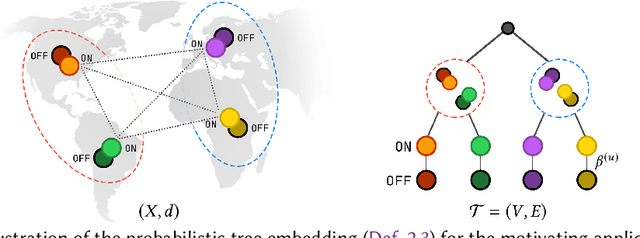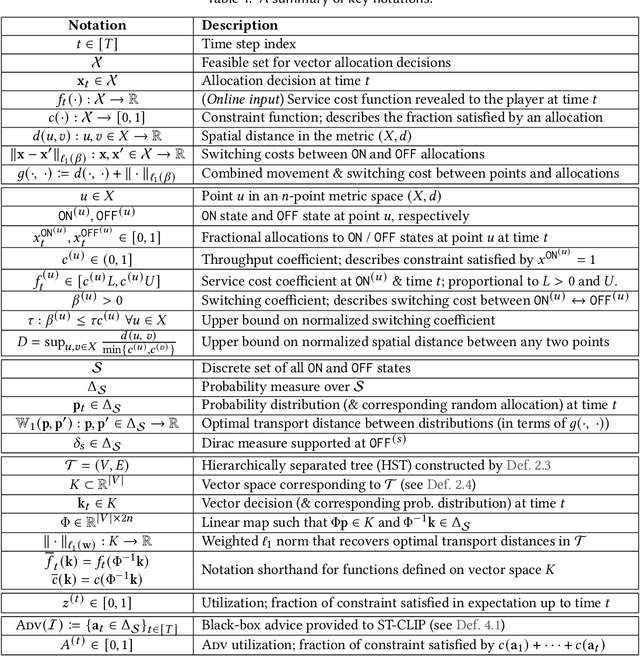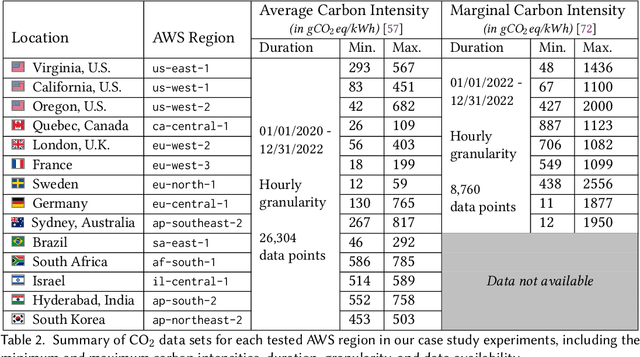CarbonClipper: Optimal Algorithms for Carbon-Aware Spatiotemporal Workload Management
Paper and Code
Aug 14, 2024



We study carbon-aware spatiotemporal workload management, which seeks to address the growing environmental impact of data centers. We formalize this as an online problem called spatiotemporal online allocation with deadline constraints ($\mathsf{SOAD}$), in which an online player completes a workload (e.g., a batch compute job) by moving and scheduling the workload across a network subject to a deadline $T$. At each time step, a service cost function is revealed, representing, e.g., the carbon intensity of servicing a workload at each location, and the player must irrevocably decide the current allocation. Furthermore, whenever the player moves the allocation, it incurs a movement cost defined by a metric space $(X,d)$ that captures, e.g., the overhead of migrating a compute job. $\mathsf{SOAD}$ formalizes the open problem of combining general metrics and deadline constraints in the online algorithms literature, unifying problems such as metrical task systems and online search. We propose a competitive algorithm for $\mathsf{SOAD}$ along with a matching lower bound that proves it is optimal. Our main algorithm, ${\rm C{\scriptsize ARBON}C{\scriptsize LIPPER}}$, is a learning-augmented algorithm that takes advantage of predictions (e.g., carbon intensity forecasts) and achieves an optimal consistency-robustness trade-off. We evaluate our proposed algorithms for carbon-aware spatiotemporal workload management on a simulated global data center network, showing that ${\rm C{\scriptsize ARBON}C{\scriptsize LIPPER}}$ significantly improves performance compared to baseline methods and delivers meaningful carbon reductions.
 Add to Chrome
Add to Chrome Add to Firefox
Add to Firefox Add to Edge
Add to Edge